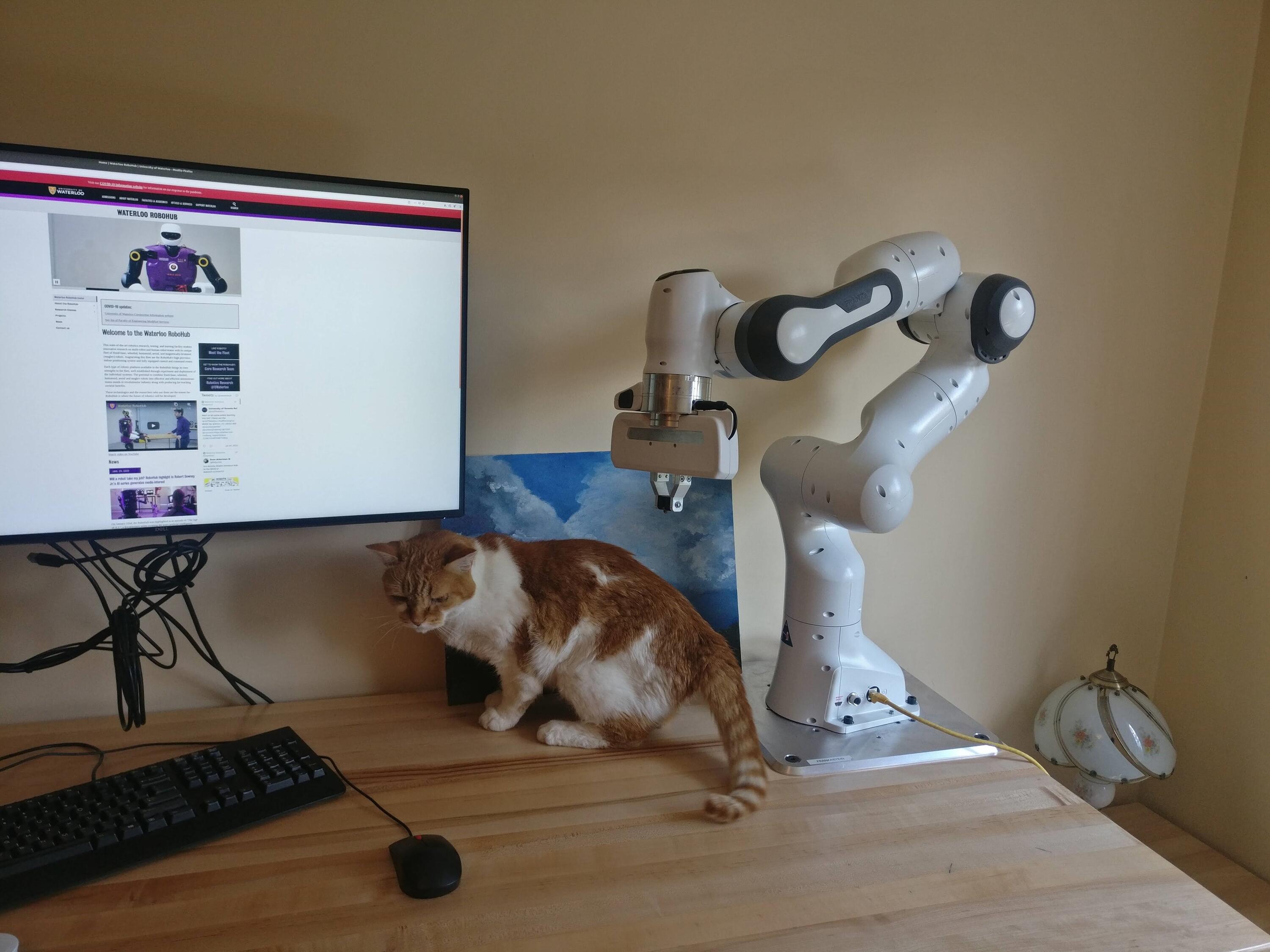To help students, the RoboHub loans out robots during pandemic
The Director of the Waterloo RoboHub, William Melek, and the RoboHub Manager, Brandon J. DeHart, were in a quandary when the University was shut down in March due to the pandemic. The main issue was this: how could students test hypotheses and continue the research they were doing when they couldn’t have access to the RoboHub and its robots?
When one week turned into one month, and one month turned into two, they decided to create a program to loan the robots to students – this was a risk, but they knew students needed to continue their research to finish their degrees.
As the days in isolation increased, Melek and DeHart (along with the rest of the RoboHub team) put a plan together to loan out the robots. Some issues of concern were the safety of the students, damage or loss of the robots, the number of robots available, and how to get the robots to the students. DeHart says, “We have very passionate, trustworthy, focused students in the RoboHub, so it was a no-brainer that we had to make this work to support them.”

PhD candidate Vladimir Joukov said being able to borrow a robot has allowed him to test new ideas and finish his last paper: “Without the robot I could not move forward. All the theory and simulations were complete and the results looked promising; however, without testing the actual robotic arm it is impossible to say if my control algorithm would work. Having the robot at home means I have 24/7 access and I don't have to share, which results in more completed work.” Joukov is currently living in Toronto with his parents, so the logistics and risk of sharing a robot would have been difficult.
When asked if he was surprised about the level of trust or any concerns about safety, he responded, “I've traveled with the robot to a conference and had no issues packing it up and transporting it. I think with the available training modules and supervised experience in the lab, students know their equipment very well and should be trusted to work with it on their own. The arm is set-up so any tiny collision, fast motion, or unexpected joint torque will cause it to immediately stop. There is also the kill-switch that I have one hand over any time the arm is active.”
If he wasn’t allowed to borrow the robot he might have had to publish the approaches without validation on real hardware. “I am a strong believer that if you are developing control algorithms, proposed to work on existing hardware, testing only in simulation is a cop-out so I wouldn't really be satisfied with my thesis.”
DeHart says, “The lending program has been very successful so far and we’ve seen no major issues. Students are collaborating virtually and able to work on their research. The situation isn’t ideal and it’s much better for everyone to work in the RoboHub, but this interim solution is the right thing to do. We are fortunate that we have great students that we trust and can support them virtually when any issues might arise.”

In Toronto, Vladimir Joukov's family cat looking for a backrub from the robot he was loaned from the Robohub.
Joukov also found a silver lining in the months that he didn’t have access to the robot. The sudden campus closure did not allow him to retrieve his items, so he was left without a robot and other equipment for another project. He had planned to complete a robot experiment in March and defend his thesis in May, so the pandemic had already delayed his graduation by at least a term.
He said, while not ideal, “the closure of the lab was beneficial for my research. Without any hardware, I fiddled with math on paper resulting in a new machine-learning algorithm that significantly improves my previous control approach for the robot. I hope it will be a nice contribution to both machine learning and control fields.” He says the new change will take more time to implement and test and may shift his graduation date, but he is grateful for the opportunity to test these further contributions and strengthen his thesis before his defence.
- Read more about Vladimir Joukov’s research on Google Scholar.
- Keep updated about the RoboHub on its active Twitter account or visit the website.